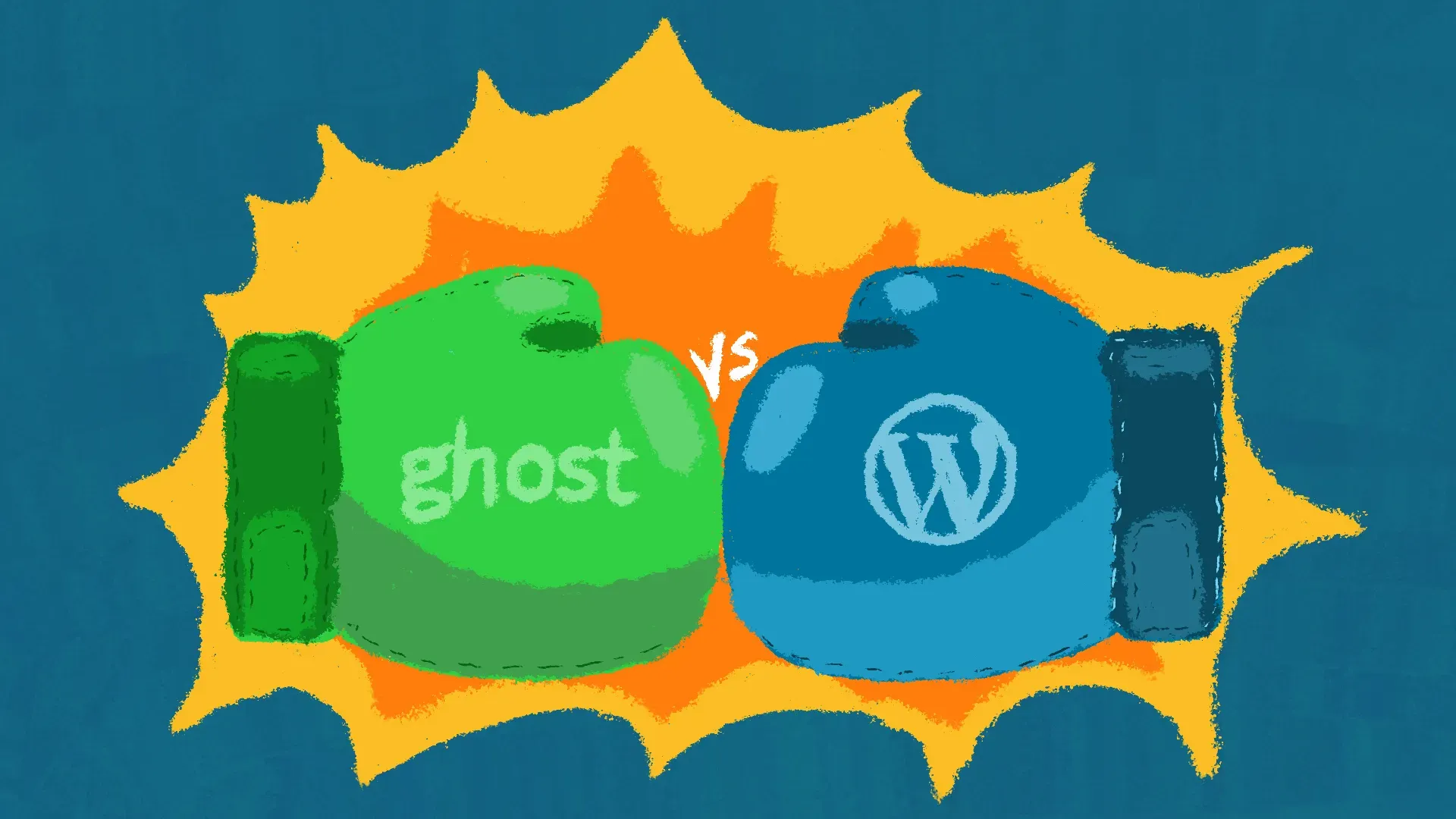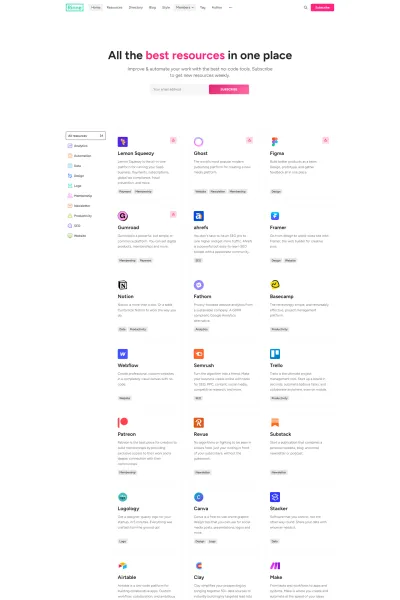In this extensive guide comparing WordPress and Ghost for 2025, we explore each platform’s history, philosophy, and functionality to help you make the right choice for your website. WordPress remains the world’s most popular CMS, offering unparalleled flexibility, an enormous plugin ecosystem, and support for virtually every type of website—including e-commerce, corporate blogs, and online communities. However, its all-in-one approach can introduce complexity, plugin conflicts, and potential performance issues. Ghost, by contrast, was born as a lightweight, content-focused alternative built on Node.js. It boasts a clutter-free editor, built-in SEO and membership tools, plus excellent performance right out of the box—making it a top pick for blogs, digital magazines, and membership-driven sites. With fewer plugins and an emphasis on simplicity, Ghost minimizes ongoing maintenance and security concerns. Whether you need the vast adaptability of WordPress or the streamlined approach of Ghost depends on your goals. For complex e-commerce or large-scale, multi-purpose websites, WordPress may still be the better fit. But if you’re a content creator seeking a fast, modern, and easy-to-maintain platform with native monetization features, Ghost shines in 2025.
Introduction
Welcome to 2025, a time when creating and managing a website is more accessible than ever—but also more overwhelming. If you’ve been researching content management systems (CMS), you’ve likely come across the two major players in the publishing sphere: WordPress and Ghost.
For many years, WordPress has held the lion’s share of the market. However, Ghost has steadily climbed the ranks since its founding in 2013, becoming a top choice for content creators who prize speed, simplicity, and a streamlined publishing experience.
In this article, I’ll explore why Ghost has become such a compelling alternative and why many content creators, bloggers, and digital publishers are gravitating towards it in 2025. I’ll compare and contrast WordPress and Ghost thoroughly—covering their histories, features, pros and cons, performance, security, community support, and much more.
By the end, you’ll have a comprehensive understanding of both platforms and be equipped to make an informed decision on which CMS is right for you. Spoiler alert: I am going to show you all the reasons Ghost might just be the standout choice in 2025.
History and Origins
WordPress Origins
WordPress was born out of a desire to simplify online publishing. In 2003, Matt Mullenweg and Mike Little took b2/cafelog—a blogging software—and forked it, creating what we now know as WordPress. Over time, it evolved into a full-fledged CMS that can handle everything from simple blogs to complex e-commerce websites.


By the early 2020s, WordPress powered over 40% of all websites on the internet (according to data from W3Techs, in 2022 it was hovering around 43%). The ecosystem around WordPress is vast—tens of thousands of plugins, themes, agencies, and hosting providers exist to make building a site on WordPress extremely flexible.

Ghost Origins
On the other hand, Ghost was launched in 2013 and spearheaded by John O’Nolan, a former WordPress contributor. Dissatisfied with how WordPress had become everything to everyone, John dreamed of a lean, modern publishing platform that put writers first.

A successful Kickstarter campaign funded Ghost’s initial development, and the rest is history. Ghost is built on Node.js, a high-performance JavaScript runtime environment. Right from the start, it has prioritized speed, simplicity, and an outstanding writing experience. While WordPress tries to do it all, Ghost narrows in on perfecting the art of publishing.
Why Compare Them in 2025?
The digital world moves quickly. Although both WordPress and Ghost have been around for years, their development paths have diverged significantly:
- WordPress is more an all-encompassing solution, supporting everything from membership sites to large e-commerce stores.
- Ghost focuses intensely on blogging, newsletters, and membership-driven content with a minimalistic approach.
Core Philosophies
WordPress’s Core Philosophy
WordPress is guided by its mission to “Democratize Publishing”. It aims to make it simple for anyone—technical or not—to launch a website. The result is:
- Vast Versatility: From a local bakery’s small site to a Fortune 500 company’s blog, WordPress has enough plugins and themes to serve every niche.
- Robust Community: Millions of users, developers, and contributors forming a global network.
- Plugin Ecosystem: Over 60,000 free plugins in the official directory (and countless premium ones), allowing you to add nearly any functionality imaginable.
However, as WordPress expanded over the years, it acquired an inevitable bloat—an enormous codebase that can be overkill for publishers who just want to write and share content efficiently.
Love what you read?
Get exclusive Ghost updates & new theme drops in your inbox!
Ghost’s Core Philosophy
Ghost’s philosophy is radically more focused: it’s a platform created by publishers, for publishers. The emphasis is on:
- Simplicity: Reducing clutter, streamlining the interface, making writing experiences pleasurable.
- Speed: Lean Node.js architecture for fast site performance and excellent server response times.
- Monetization Tools: Built-in membership and subscription features for anyone wanting to monetize their content.
- Aesthetics and Modern Design: Official and third-party themes that are minimalistic, beautiful, and easy to modify.
Key Features
WordPress Key Features
- Plugin Ecosystem
Arguably WordPress’s biggest selling point. Need an event calendar? A translation plugin? A drag-and-drop page builder? Chances are, a plugin already exists. However, the vast selection also means quality varies significantly. - Theme Market
You can choose from tens of thousands of themes—both free and premium—enabling you to radically change your site’s appearance without much coding. But, again, thorough quality checks and performance considerations are crucial. - Gutenberg Block Editor
Introduced in WordPress 5.0, Gutenberg replaced the old Classic Editor. It’s a block-based editor that aims to provide a flexible page-building experience. Some users love it; others find it bulky or unintuitive.

- Extended User Roles & E-commerce
WordPress supports advanced user roles for large editorial teams. Additionally, it offers WooCommerce, one of the most popular e-commerce solutions on the web.
Ghost Key Features
- Distraction-Free Editor
Ghost’s editor supports Markdown (plus a card-based system for embeds like YouTube or social media). Its interface is minimal—it’s built to let you focus on writing.

- Built-In Membership & Subscription
A key differentiator is Ghost’s native subscription model. You can collect email subscribers, create paid newsletters, and monetize premium content—no need for additional plugins. You can connect your Stripe with just one click.

- SEO-Friendliness
Ghost automatically handles sitemaps, canonical tags, meta data, and more. There’s no need for add-on SEO plugins. The code is clean and optimized for search engines out of the box.

- Clean, Modern Themes
While Ghost has fewer themes than WordPress, the Ghost Marketplace and third-party developers provide high-quality, performance-oriented designs.
Ease of Use
WordPress Ease of Use
- Installation: Many hosting providers offer one-click WordPress installations. This is a plus for beginners.
- Setup Complexity: After installation, expect to configure multiple plugins (SEO, security, caching) to optimize your site. This can be time-consuming, particularly for novices.
- Learning Curve: With countless admin settings, plugin interfaces, and the new Gutenberg editor, some find WordPress initially overwhelming.
- Ongoing Management: You must frequently update core WordPress, plugins, and themes to keep everything secure and functional.
Ghost Ease of Use
- Installation: If you opt for Ghost(Pro), it’s as easy as signing up and following a wizard. If you self-host Ghost, you’ll need a Node.js environment; many hosts (e.g., DigitalOcean, Linode) offer streamlined Ghost installs.
- Initial Setup: Ghost is purposely minimal. You pick a theme, set up your staff users, configure your membership levels (if desired), and you’re ready to publish in minutes.
- Learning Curve: The interface is intuitive and focuses on the essentials: creating and managing your content.
- Maintenance: Updates are typically handled automatically (for Ghost(Pro)) or via a single command -
ghost update, for self-hosted instances, with significantly fewer plugin (ideally zero) conflicts to worry about.

Start your publishing journey effortlessly with Ghost(Pro), the hassle-free, fully-managed hosting. Click the button below to get started!
-
0% Transaction fees
-
Custom domain
-
Fully managed service
-
Automatic weekly updates
-
Worldwide CDN
-
Enterprise-grade security
-
Threat & uptime management
-
Migration from current CMS
Includes 14-day FREE trial
Customization
WordPress Customization
One of WordPress’s enduring strengths is how infinitely customizable it can be:
- Themes: Tens of thousands of free and paid themes exist, but watch out for performance-heavy or poorly coded ones.
- Plugins: You can extend WordPress with any functionality—from advanced SEO to membership sites to LMS (Learning Management Systems). But the more plugins you add, the higher the risk of performance lags and plugin conflicts.
- Page Builders: Tools like Elementor, Beaver Builder, or Divi give you drag-and-drop design freedom. However, they can also add bloat and slow down your site.

Ghost Customization
- Themes: Ghost has a smaller theme ecosystem, but each theme generally prioritizes speed, aesthetics, and clean code. Theme My Blog's Ghost Marketplace is curated, so you can easily find themes for your use cases and make an informed decision using the theme ratings.

- Customization Approach: Ghost uses Handlebars.js for templating, making it straightforward to customize if you’re comfortable with HTML and CSS.
- Plugins: Ghost doesn’t rely heavily on plugins. Most essential features (membership, email subscriptions, SEO basics) come built-in. If you need more, you can integrate third-party services via webhooks and the Ghost API.
Performance
WordPress Performance
WordPress’s performance largely depends on:
- Hosting Quality: A shared, budget hosting plan might struggle under WordPress’s load. Dedicated WordPress hosting can speed things up, but they'll cost more. WordPress needs more powerful (hence costly) servers than Ghost.
- Caching Plugins: Tools like W3 Total Cache or WP Super Cache are essential to handle heavier traffic.
- Theme & Plugin Overhead: Overly bloated themes or an excessive number of plugins can slow your site significantly.
It’s absolutely possible to achieve excellent performance with WordPress, but it often requires more technical know-how, careful plugin choices, and possibly a dedicated or costly managed hosting plan.
Ghost Performance
Ghost is well-known for being lightning fast because:
- Node.js Foundation: Node.js handles concurrent connections more efficiently than PHP (which WordPress uses). This can reduce response times under heavy traffic.
- Minimal Bloat: With fewer moving parts and built-in features for memberships and newsletters, Ghost sites often run with fewer external dependencies.
- Ghost(Pro): The managed Ghost hosting solution includes a globally distributed CDN and caching layers, providing an out-of-the-box, high-performance experience.

Security
WordPress Security
- Popularity Attracts Hackers: Since WordPress powers a large percentage of the web, it’s a big target.
- Plugin Vulnerabilities: Poorly maintained or outdated plugins remain a common attack vector.
- Security Plugins: Solutions like Wordfence or iThemes Security help, but they’re yet another layer of configuration to manage and additional costs.
- Frequent Updates: You’ll need to regularly update your core, themes, and plugins to stay secure.
Ghost Security
- Smaller Attack Surface: With fewer plugins and less market share, attackers have fewer incentives to target Ghost.
- Built-In Updates: Ghost has simpler update processes, especially if you use Ghost(Pro).
- Node.js Security: Node.js is not inherently more secure than PHP, but Ghost’s architecture and emphasis on minimalism result in fewer vulnerabilities.
- Active Patch Management: The Ghost development team provides timely patches and updates. Read more about Ghost's security features.
SEO Capabilities
WordPress SEO
- SEO Plugins: Tools like Yoast SEO, All in One SEO Pack, or Rank Math handle everything from meta titles to advanced schema configurations. Please note, to reap full benefits, you need the premium version of these plugins which is an additional cost.
- Flexibility: You can customize your site’s structure thoroughly, but you rely heavily on third-party plugins for full SEO coverage.
- Performance Factor: Page speed is a ranking factor. WordPress’s potential bloat can hamper SEO if not optimized.
Ghost SEO
- Native Implementation: Ghost automatically handles canonical tags, meta tags, and sitemaps.
- Fast Sites: Its default speed advantage aids SEO. Google has repeatedly emphasized the importance of fast-loading websites.
- Newsletter Integration: Ghost has a built-in newsletter feature that lets you maintain regular contact with your audience, building engagement and improving SEO through repeat visits.

E-commerce & Membership
WordPress E-commerce
- WooCommerce: A world-leading e-commerce plugin that can transform a WordPress site into a full store with shipping, taxes, variable products, advanced coupons, and more.
- Maintenance & Complexity: Running a WooCommerce store can be a complex endeavor, with numerous extensions for payments, shipping, memberships, etc.
Ghost Memberships and Monetization
- Native Membership: You can set up a free or paid subscription for your readers directly from the Ghost admin panel.
- Stripe Integration: Collect recurring payments with minimal effort. Perfect for premium newsletters or membership sites that revolve around content rather than physical goods.
- Simplicity: Monetization features are integrated, which reduces the plugin sprawl seen in WordPress.
Community and Support
WordPress Community
- Massive and Global: With millions of users worldwide, you’ll find WordPress experts in nearly every city.
- WordCamps and Meetups: Regular events that bring the community together, encouraging collaboration and learning.
- Plugins & Themes: Many are built by third-party developers, so support quality varies.
- Learning Resources: Thousands of blogs, YouTube channels, and online courses are devoted to WordPress.
Ghost Community
- Smaller but Growing: Ghost’s community is nowhere near as large as WordPress’s, but it’s vibrant and enthusiastic.
- Official Forum: Ghost provides an official forum where users collaborate directly with developers and other site owners.
- Documentation: Ghost has thorough documentation, and many solutions can be found in the official knowledge base.
- Ghost(Pro) Support: Subscribers to Ghost’s hosting service get direct support from the Ghost team.

Pricing and Total Cost of Ownership
WordPress Costs
- Core Software: 100% free and open source.
- Hosting: Ranges from a few dollars per month (shared hosting) to hundreds (managed/dedicated hosting).
- Plugins & Themes: Many free options, but premium or specialized plugins can cost approximately from $50 to $200 per year.
- Maintenance & Security: You may need to invest in security plugins or a developer’s help if your site becomes large.
Hidden Costs: Although WordPress can be started on a shoestring budget, many site owners end up paying for premium themes, specialized plugins, and developer assistance—especially if you want a streamlined, professional site.
Ghost Costs
- Open Source: Ghost is also free to download and self-host.
- Ghost(Pro): Starts around $9/month for a Starter plan (prices can vary depending on traffic and subscriber counts). This includes hosting, CDN, security, and updates.
- Fewer Premium Themes: Most Ghost themes are relatively affordable, often ranging from $19–$149 if you opt for a premium design. Subscribe to reveal coupon codes for premium themes.
- Less Ongoing Overhead: Because many advanced features are built-in, you typically won’t be stacking numerous plugins or third-party apps.

Major Pros and Cons
WordPress Pros
- Massive Ecosystem: Huge plugin and theme library, widespread developer availability.
- Flexibility: Suitable for blogs, business sites, e-commerce, membership, LMS, and more.
- Brand Trust: Over two decades of user trust, used by big brands like The New York Times, TechCrunch, etc.
- Community: Large, active global community for free support.
WordPress Cons
- Performance Issues: Can become slow or resource-heavy without careful optimization.
- Security Vulnerabilities: Regular updates and vigilance are critical to combat common attacks.
- Complex Setup: Plugins, themes, and the Gutenberg editor can overwhelm beginners.
- Maintenance Burden: Frequent updates can cause plugin conflicts and potential downtime if not managed well.
Ghost Pros
- Speed & Performance: Built on Node.js, inherently faster response times, optimized for modern publishing.
- Minimalist, User-Friendly Interface: Easy for writers and editors to focus on content creation.
- Built-In Membership & Monetization: No additional plugins needed to monetize newsletters or gated content.
- Fewer Maintenance Headaches: Streamlined updates, smaller attack surface, fewer plugin conflicts.
Ghost Cons
- Smaller Ecosystem: Fewer themes and fewer plugin alternatives compared to WordPress.
- Node.js Hosting: Self-hosting Ghost requires Node.js or a suitable hosting provider.
- Less Ideal for Complex E-commerce: Ghost’s integrated membership features don’t substitute for robust e-commerce solutions.
- Community Size: Not as large as WordPress, though it’s growing steadily.
Who is Each Platform Best For?
After examining the strengths and weaknesses of both platforms, it's clear that they cater to different needs.
WordPress is a good choice if:
- You need to build a highly customized website that goes beyond a standard blog or publication, such as a complex e-commerce store with unique features.
- You require a vast array of plugins for niche functionalities that are not covered by Ghost's core features or integrations.
- You're comfortable with a steeper learning curve or have the budget to hire developers for customization and maintenance.
- You need a platform that can handle a wide range of website types beyond publishing.
Ghost is the perfect choice if:
- You're a writer, blogger, journalist, or creator primarily focused on publishing high-quality content.
- You want a fast, secure, and beautiful website without the hassle of constant maintenance, plugin conflicts, and security vulnerabilities.
- You want to build a membership site and monetize your audience directly through subscriptions and paid content.
- You value simplicity, ease of use, and a clean, modern design that enhances the reading experience.
- You want a platform that's built for the future of online publishing, with a focus on performance, security, and audience engagement.
- You prioritize a streamlined, focused platform over endless customization options.
The Future Landscape
Technological Shifts Favoring Simplicity
In 2025, end-users expect lightning-fast loading times. Content creators also want no-fuss publishing experiences and easy monetization. Ghost’s minimalistic architecture fits perfectly into the trend of moving away from monolithic systems toward leaner, more efficient solutions.
Monetization Trends
Subscription-based content has become the norm, with platforms like Substack gaining popularity in the early 2020s. Ghost saw this opportunity early on and integrated membership and newsletter features directly into its core. As digital creators look for ways to own their audience and revenue streams without relying on third-party platforms, Ghost stands out as a prime solution.
Sustainability and Community Growth
Ghost is open-source and run by the non-profit Ghost Foundation. Revenues from Ghost(Pro) go back into product development. This sustainable model ensures that the platform continues to evolve while maintaining its user-focused ethos. The community, though smaller than WordPress, is enthusiastic and invests heavily in user feedback and improvements.
Final Differentiators Making Ghost Stand Out
- Ultra-Fast: Performance is built-in, not retrofitted.
- Membership-Centric: Perfect for newsletters and subscriber-based revenue.
- Minimal Maintenance: Fewer plugins, simpler upgrades.
- Modern Tech Stack: Node.js is increasingly popular, making Ghost more future-proof.
Myths & Misconceptions
Myth: “Ghost Is Only for Tech-Savvy Users”
Reality: If you choose Ghost(Pro), you don’t have to manage servers or install Node.js yourself. The interface is arguably simpler than WordPress’s admin panel.
Myth: “WordPress Is Always Cheaper”
Reality: While the WordPress core is free, premium themes, plugins, and specialized managed hosting can add up. Ghost’s built-in features may ultimately save you money.
Myth: “Ghost Doesn’t Have Enough Features”
Reality: For a content-focused site, Ghost covers the essentials: SEO, newsletters, membership, speed. Additional integrations are easily handled via APIs.
Myth: “WordPress’ Market Share Means It’s the Best”
Reality: Popularity doesn’t always equate to suitability. WordPress is a big tent; it’s great for many scenarios, but for pure publishing, Ghost often provides a more refined experience.
Love what you read?
Get exclusive Ghost updates & new theme drops in your inbox!
Bonus: Ghost vs The Competition
While we've primarily focused on WordPress, it's worth briefly comparing Ghost to other specialized membership/publishing platforms to solidify its position as the top choice for creators.
Ghost vs. Substack
Substack has gained popularity as a newsletter platform, but it offers limited control over branding, design, and audience data. Ghost, on the other hand, provides complete ownership and control. You own your brand, your website, and your audience data, allowing you to build a truly independent online presence. With Ghost, you're not building on rented land; you're building on your own digital property.
Ghost vs. Medium:
Medium can be a good place to gain initial exposure, but it's ultimately a walled garden. You're subject to Medium's ever-changing algorithm and limited monetization options. Ghost empowers you to build your own standalone brand and monetize directly through memberships and subscriptions, without relying on a third-party platform's rules.
Ghost vs. Memberful/Patreon
While platforms like Memberful and Patreon are useful for managing memberships, they often require integrating with a separate CMS for content creation. Ghost seamlessly combines content creation, audience engagement, and membership management all in one platform. This simplifies your workflow, reduces costs, and provides a more cohesive experience for your audience.
In essence, Ghost offers the best of all worlds:
- The audience-building potential of platforms like Substack and Medium.
- The membership and monetization capabilities of platforms like Memberful and Patreon.
- The flexibility and data control of a self-hosted website.
This unique combination makes Ghost the clear winner among its direct competitors, solidifying its position as the best CMS for creators and publishers in 2025.
Conclusion
You’ve now seen that WordPress and Ghost each bring something different to the table. WordPress is a venerable giant, backed by a huge user base and countless plugins. It’s the “jack-of-all-trades” platform that can transform into almost any type of website. However, with that comes complexity—in the form of ongoing maintenance, potential performance issues, security upkeep, and plugin conflicts.
Ghost, by contrast, remains laser-focused on publishing excellence. Here are key reasons it stands out as the best CMS for 2025 if content is your main focus:
- Modern Architecture
Ghost is built on Node.js, offering blazing-fast performance and an easier path to scalability. In an era of short attention spans and heavy competition, site speed is everything. - Minimal Maintenance
Fewer plugins, a smaller attack surface, and straightforward updates mean less time worrying about your site’s technical underpinnings and more time creating quality content. - Built-In Monetization & SEO
If you’re a blogger or digital publisher, there’s no easier way to set up paid subscriptions, newsletters, or membership tiers. Ghost also includes SEO out of the box. - User-Friendly Editor
Ghost’s editor is intentionally minimalist, so you can focus on writing. That’s refreshing when you’ve spent years navigating WordPress’s (at times) clunky block editor or plugin-laden interface. - Integrated Newsletter & Membership
The future of content creation lies in direct relationships with your readers, whether through email updates or premium memberships. Ghost’s native tools make this more accessible than ever.
While WordPress certainly isn’t going away—especially for complex, multi-purpose websites—it’s often overkill for someone who wants to publish content swiftly and monetize effectively. Ghost shines brightest in 2025 for those looking for a nimble, modern, and less maintenance-heavy approach.
Thank you for reading this in-depth comparison. I hope you now have the clarity you need to decide which CMS will power your website in 2025. If you’re ready to take your content creation to the next level, give Ghost a try—you might be pleasantly surprised by just how seamless and enjoyable the publishing process can be.

Start your publishing journey effortlessly with Ghost(Pro), the hassle-free, fully-managed hosting. Click the button below to get started!
-
0% Transaction fees
-
Custom domain
-
Fully managed service
-
Automatic weekly updates
-
Worldwide CDN
-
Enterprise-grade security
-
Threat & uptime management
-
Migration from current CMS
Includes 14-day FREE trial
FAQs
Is Ghost More Secure Than WordPress?
Ghost: Smaller footprint, integrated functionalities, and fewer plugin vulnerabilities. If you keep your Ghost install updated (or use Ghost(Pro)), you’ll enjoy a secure platform.
WordPress: Secure if maintained properly, but high usage makes it a frequent target for attacks. Security also depends on the plugins you install.
Which Platform Is Better for SEO?
Ghost: Comes with baked-in SEO features (canonical tags, structured data, meta tags) and is fast by default, which Google loves.
WordPress: Potentially more advanced options via Yoast or Rank Math, but it can become plugin-heavy and hamper site speed if not configured properly.
Can I Use Ghost for a Large-Scale Website?
Absolutely. Ghost’s Node.js base is scalable. High-traffic sites can use multi-server setups, managed Node.js hosting, or Ghost(Pro). If content is your main offering, there’s virtually no upper limit to how big your Ghost site can grow.
How Easy Is It to Add E-commerce on Ghost?
While Ghost doesn’t offer a full-blown e-commerce solution out-of-the-box, you can embed payment buttons from platforms like Snipcart or Shopify. For basic product sales or donations, many Ghost users integrate third-party solutions without friction. However, if you need a robust e-commerce engine with shipping, advanced taxation, multiple currencies, or inventory management, WordPress with WooCommerce or another specialized platform might be more suitable.
Is WordPress Still a Good Choice in 2025?
Yes—particularly if you need a very broad array of features (complex e-commerce, multi-language corporate sites, interactive membership portals, etc.). However, if you’re primarily publishing content or monetizing a newsletter, Ghost offers a modern, faster, and more streamlined experience.














